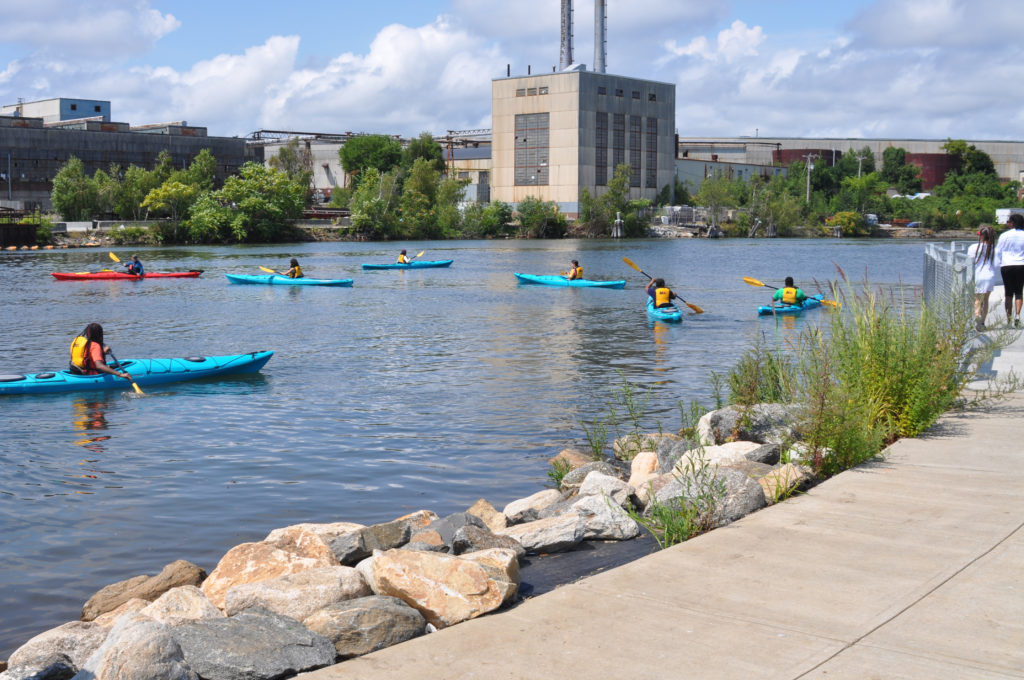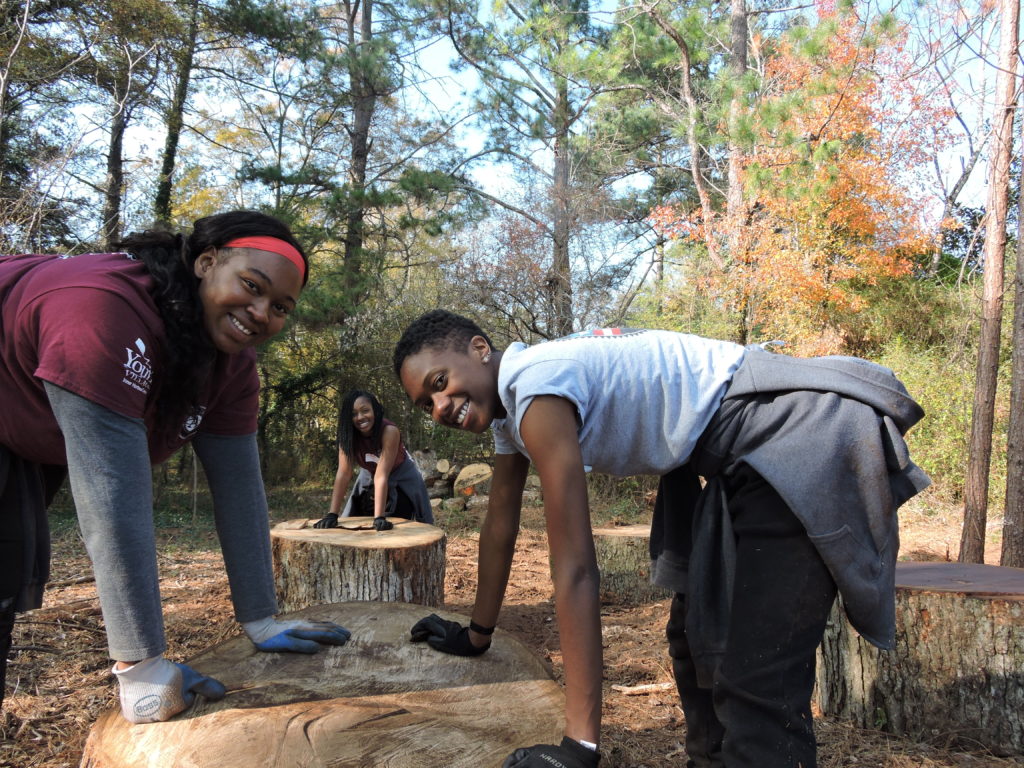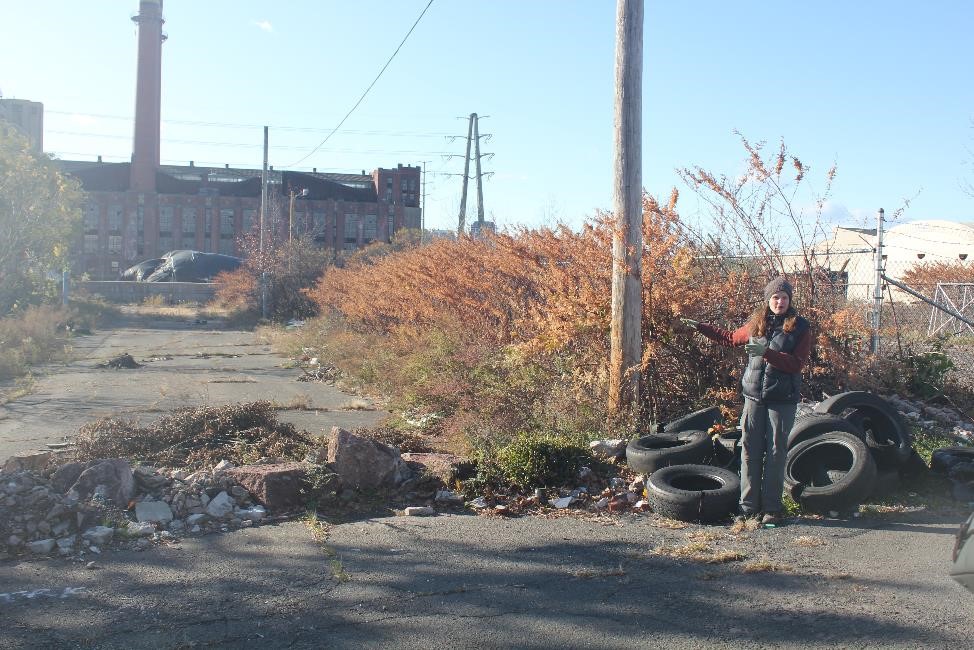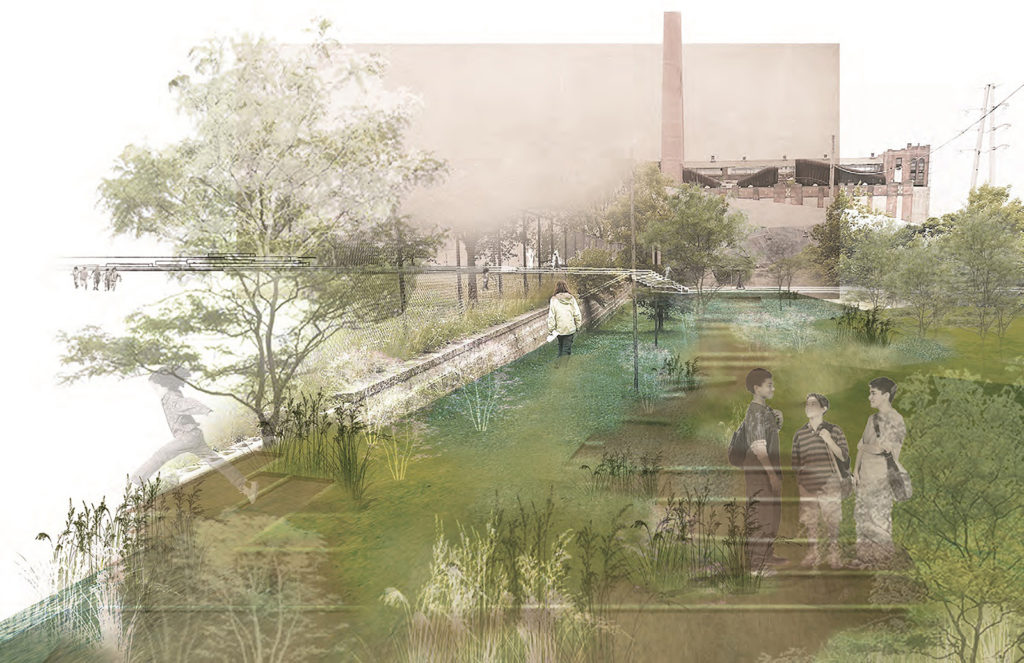By Tere Figueras Negrete, Director of Communications
Neighborhood gardens and an urban food forest that will produce fruits, herbs and vegetables for low-income communities. Vibrant and sustainable public spaces brought to life by transforming an abandoned roadway and an under-used local waterfront. Affordable housing that is able to weather extreme storms and climate-related disasters, and homeowners equipped with the skills to ensure homes are energy efficient and free of highly toxic lead.
These community-based approaches that address climate impacts, strengthen local economies and improve the well-being of all residents are the latest round of projects that will receive funding thanks to the Partners for Places matching grant program.
Six U.S. cities will receive $853,000 to support these sustainability efforts — which focus largely on empowering and engaging low-income neighborhoods and building partnerships between government sustainability offices and place-based foundations.
Atlanta, Ga., is creating the city’s first publicly owned food forest in an underserved community deemed a “food desert” because of a lack of access to fresh produce. The grant will be used to support education and volunteer programs at the seven-acre food forest located on one of the last remaining farmsteads in the area. The funding for the Urban Food Forest at Brown Mills will help establish volunteer and educational programs that encourage people to learn more about how food is produced and help foster a connection to the cultural and social history of the community.
In Philadelphia, Pa., the Partners for Places grant will support efforts to create a citywide urban agriculture plan to ensure all Philadelphians have access to fresh, healthy and affordable food. The coordinated approach is designed to further encourage urban agriculture, especially in disinvested areas where neighbors have transformed hundreds of vacant or under-used spaces into gardens that are often at risk of being lost due to development, lack of funding, and other issues.
Boston, Mass., where a significant proportion of housing is located in physically vulnerable areas such as floodplains, will support efforts to ensure the homes of some of the city’s most socially and economically underserved residents are ready to withstand future climate shocks. This includes plans to offer emergency preparedness planning and resiliency audits for owners and managers of affordable multi-family housing, helping them better protect properties and residents from the impacts of extreme storms, high temperatures and other climate-related disasters.
In Detroit, Mich., limited-income homeowners will be better able to address lead hazards, energy and water inefficiency and other home repair needs. Homeowners and their family members will go through a hands-on workshop series to acquire basic home renovation and repair skills, as well as training to safely remove lead or safely repair homes where lead may be present. Participants will receive lead-safe work supplies, weatherization supplies, access to a tool share for their renovation projects and the opportunity to be mentored by experienced contractors to reinforce class learnings.

Two Connecticut communities will receive funding for green stormwater infrastructure projects designed to advance water-related sustainability goals.
An abandoned roadway in New Haven, Conn., will be turned into a community greenspace with green infrastructure connecting an urban community to parkland and the nearby Mill River. The project, which is located in an underserved community where access to the shore and greenspace have been sacrificed to industrial use, will convert the unused roadway into a “parklet” consisting of a multi-purpose trail and a series of native pollinator gardens and bioretention areas that will divert more than two million gallons of stormwater from New Haven’s combined sewer system each year. In Bridgeport, Conn., where a majority of the city’s waterfront areas are underused or inaccessible to the public, community stakeholders will work to build an equitable and sustainable waterfront that incorporates green infrastructure and resiliency features. Partners for Places funding will be used to support a community-based effort to plan, design, and create a waterfront pathway that traces Long Island Sound and several rivers.
Partners for Places, led by the Funders’ Network for Smart Growth and Livable Communities in partnership with the Urban Sustainability Directors Network, will provide $372,500 in funding to these six cities through the grant program. With contributions from local matching funders, a total of $853,000 will be committed to fund sustainability projects in these selected cities. This grant cycle includes $112,500 awarded to two green stormwater infrastructure projects — in the cities of Bridgeport and New Haven — designed to advance water-related sustainability goals.
The Partners for Places matching grants program has helped foster dozens of new partnerships between local government sustainability leaders and place-based funders across the U.S. and Canada over the past eight years. The matching grant program brings national funder investors together with place-based funders to support local sustainability and climate action projects. The program is supported by seven investor foundations: The JPB Foundation, The Kendeda Fund, The Kresge Foundation, The New York Community Trust, Pisces Foundation, The Summit Foundation, and Surdna Foundation.
“Communities across the U.S. and Canada are coming together to tackle the impacts of climate change with innovative projects that are making a difference in people’s lives, especially those in greatest need,” said Diane Ives, fund advisor for The Kendeda Fund’s People, Place and Planet program. “These partnerships foster long-term relationships that in turn help communities become more sustainable, equitable and prosperous places.”
To date, Partners for Places has awarded more than $7 million across North America in this successful matching grant program. Matching local funders have contributed in excess of $8 million, leading to more than more than $15 million in investments.
Partners for Places will open a new round of funding for the general grant program on Dec. 5, 2019. The Round 16 RFP will be due Jan. 31, 2020. If you have any questions about the Partners for Places grant program, please reach out to Ashley Quintana at ashley@www.fundersnetwork.org.

The latest Partners for Places grant recipients and their matching funders are:
- Atlanta, Ga. ($35,000): To create the nation’s largest and Atlanta’s first publicly-owned food forest to deliver environmental, economic, and social justice outcomes for the local community. Matching funder: Turner Foundation ($35,000).
- Boston, Mass. ($50,000): To ensure vulnerable multi-family affordable housing, which is home to some of Boston’s most socially and economically underserved residents, is ready to withstand future climate shocks. Matching funder: Local Initiatives Support Corporation (LISC) Boston ($50,000).
- Bridgeport, Conn. (72,500): To build an equitable and sustainable Bridgeport Waterfront and support a community-based vision to address climate impacts, strengthen local economies, and improve the well-being of all residents. Matching funders: Jeniam Foundation ($32,500); Long Island Sound Funders Collaborative ($40,000).
- Detroit, Mich. ($100,000): To address intersectional housing issues by empowering and equipping limited income homeowners to address lead hazards, energy inefficacy, and other home repair needs. Matching funder: The Fred A. and Barbara M. Erb Family Foundation ($100,000).
- New Haven, Conn. ($40,000): To transform an abandoned roadway, in an underserved community, into a community greenspace with green infrastructure connecting an urban community to parkland and the river. Matching funders: The Community Foundation for Greater New Haven ($30,000); The Watershed Fund ($10,000).
- Philadelphia, Pa. ($75,000): To develop a comprehensive citywide urban agriculture plan that will guide the coordinated efforts of city, non-profit, and resident stakeholders to better protect, maintain, and expand community gardens, farms, and orchards. Matching funder: William Penn Foundation ($150,000).
About Partners for Places Partners for Places
A joint project of the Funders’ Network for Smart Growth and Livable Communities and the Urban Sustainability Directors Network, Partners for Places is a successful matching grant program that improves U.S. and Canadian communities by building partnerships between local government sustainability leaders and place-based foundations. National funders invest in local projects developed through these partnerships to promote a healthy environment, a strong economy and well-being for all residents. Through these investments, Partners for Places fosters long-term relationships that make our communities more prosperous, livable and vibrant. For more information on Partners for Places, visit www.fundersnetwork.org/partners-for-places/
About the Funders’ Network for Smart Growth and Livable Communities
The Funders’ Network for Smart Growth and Livable Communities (TFN) is a mission-driven network of grantmakers across North America, working to inspire, strengthen and expand funding and philanthropic leadership that yield environmentally sustainable, socially equitable, and economically prosperous regions and communities.
About The Urban Sustainability Directors Network
The Urban Sustainability Directors Network (USDN) is a peer-to-peer network of local government professionals from cities across the United States and Canada dedicated to creating a healthier environment, economic prosperity, and increased social equity. Our dynamic network enables sustainability directors and staff to share best practices and accelerate the application of good ideas across North America.

Below: An artist’s rendering of the Mill River Trail.

For additional information and media inquiries, contact: Tere Figueras Negrete, Communications Director at the Funders’ Network for Smart Growth and Livable Communities at tere@www.fundersnetwork.org

